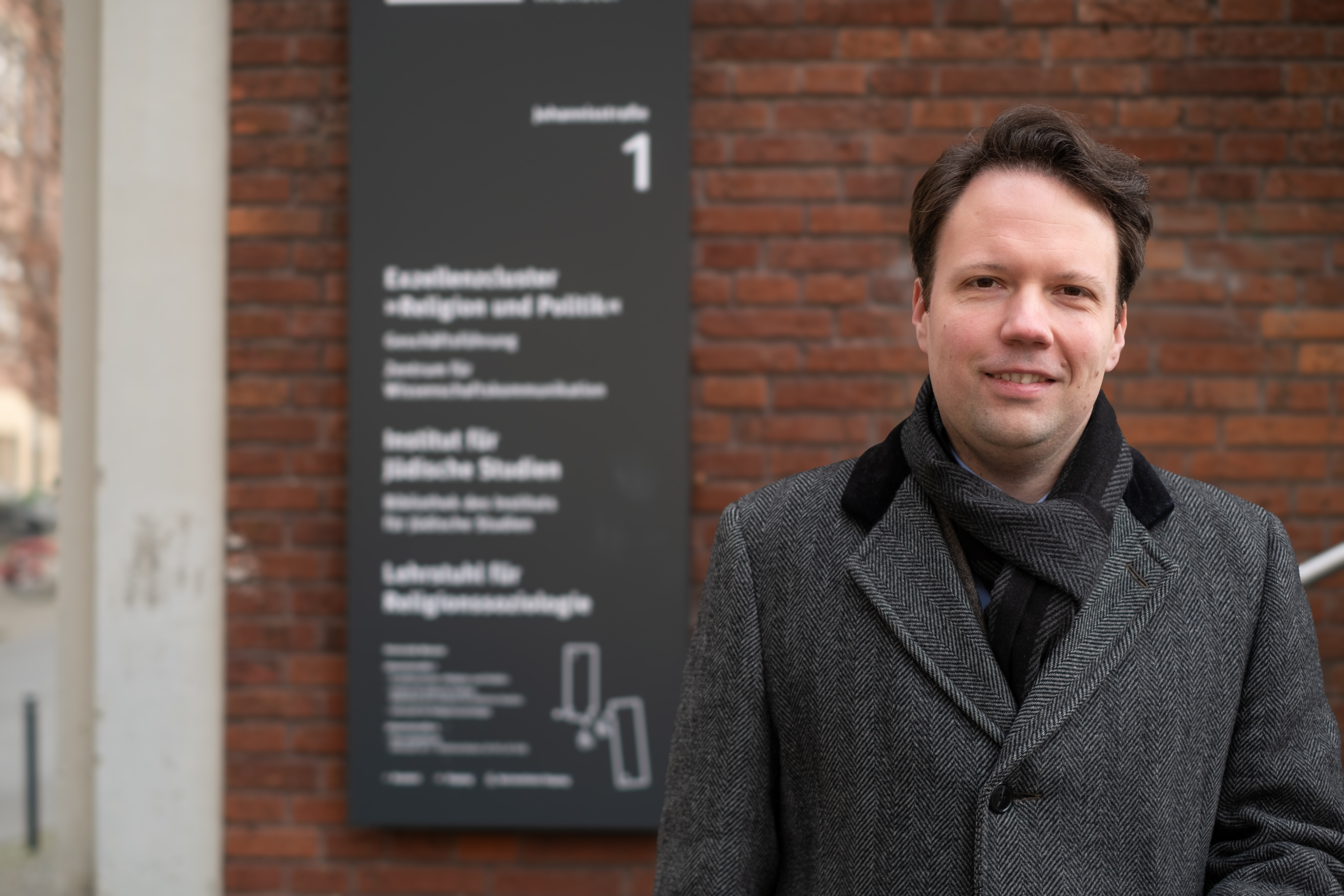Prof. Dr. Michael Seewald – Gottfried Wilhelm Leibniz Prizewinner 2025
Catholic Theology, University of Münster
Michael Seewald has dedicated himself to concise, unconventional and creative studies in systematic theology, particularly in the history and hermeneutics of dogmas. With his historically and critically derived and systematically reasoned plea for the changeability of dogmas while maintaining tradition, he has succeeded in building a bridge between opposing camps in Catholicism. Recognised as a leading figure in dogmatic hermeneutics, he significantly impacts ongoing theological conversations about reform, faith dynamics, and tradition, while also fostering a greater appreciation of scholarly theologians who are involved in broader public discourse, not just in the academic domain. He also pursues comparative religious studies in collaboration with Islamic scholar Thomas Bauer and Jewish Studies scholar Alfred Bodenheimer. These studies are a consistent advancement of his thinking, aiming to compare the fluidity of competing claims to validity within a broader context.
After studying Catholic theology, philosophy and political science in Tübingen, Michael Seewald obtained his doctorate in 2011 at the LMU Munich, also going on to gain his post-doctoral lecturing qualification there in 2015. One year later, he accepted the invitation to take up a professorship in dogmatics and the history of dogma in Münster, where he continues to teach today. Here, he has been spokesperson for the Cluster of Excellence “Religion and Politics. Dynamics of Tradition and Innovation” since 2022. He has received numerous distinctions for his academic achievements, including the Heinz Maier-Leibnitz Prize in 2017. In addition, he was appointed a scientific member of the North Rhine-Westphalian Academy of Sciences, Humanities and the Arts in 2023 and a Permanent Fellow at the Institute for Advanced Study in Berlin in 2024.
GEPRIS
In our information system GEPRI(externer Link) you will find an overview of current and completed projects of Professor Dr. Michael Seewald.
